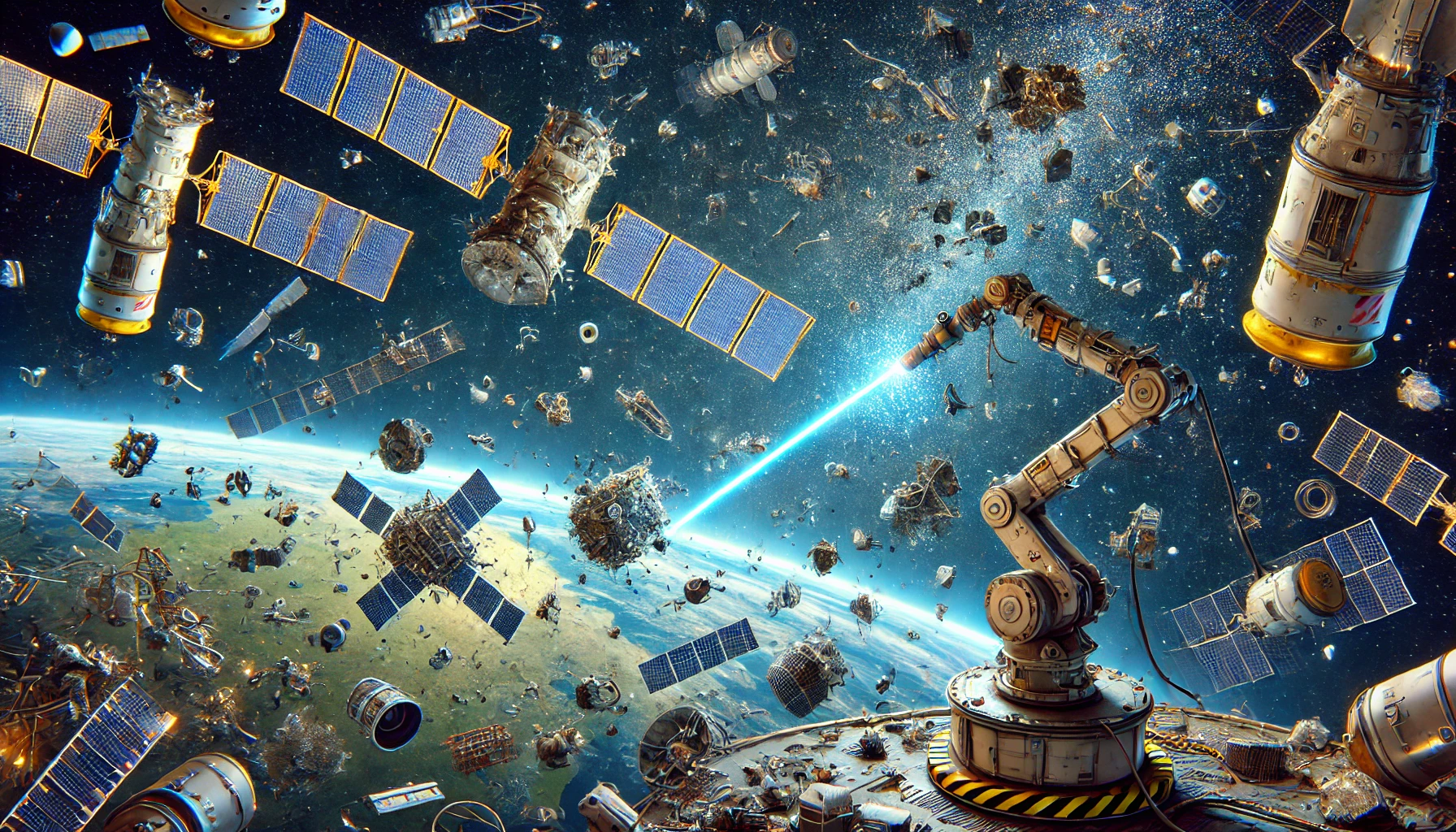Space Debris Removal Technologies: How Startups Are Tackling the Space Junk Crisis with Laser Precision and Robotic Prowess

The Growing Problem of Space Junk: An Orbital Traffic Jam
Space may seem infinite, but our orbit is starting to feel like rush hour on a Monday morning. With over 27,000 pieces of debris being tracked by the U.S. Department of Defense alone, space has become a cosmic junkyard. We're not just talking about lost astronaut gloves or wrenches from a forgotten repair mission—this is big stuff. Rocket parts, dead satellites, and debris from collisions are zooming around at speeds faster than a speeding bullet. Imagine trying to drive through a neighborhood where every parked car is hurling itself at you at 17,500 mph. Yeah, not fun. And the problem is getting worse by the day. Thankfully, startups are rising to the challenge, and their solutions are as out-of-this-world as you'd expect.
Laser-Focused Solutions: Can We Zap Space Junk Out of Existence?
One of the coolest—and most sci-fi—solutions to the space junk crisis involves lasers. And no, this isn't the Death Star; we're not vaporizing planets here. Companies like Astroscale are working on laser systems that could target smaller debris and slow it down, causing it to fall into Earth's atmosphere and burn up. Think of it as giving space junk a one-way ticket to a fiery vacation. This solution could help reduce the amount of clutter in lower Earth orbit, especially when it comes to smaller pieces of debris that are too tiny to track but large enough to cause major damage. But can lasers really clean up space? Early tests are promising, but there’s still a lot of work to be done before we can start blasting away rogue satellites with laser beams. Until then, it’s an exciting prospect that makes us all feel like we're living in a sci-fi blockbuster.
Robotic Arms in Space: The Future of Orbital Clean-up Crews
If the idea of lasers in space sounds too aggressive for you, how about a gentle touch? Some companies are betting on robotic arms that can latch onto debris and either fix it or push it into a safer orbit. These robotic space janitors could be the key to cleaning up the larger pieces of debris—things like derelict satellites and abandoned rocket stages that are just floating around waiting to crash into something important. One such company, ClearSpace, has already signed contracts with the European Space Agency to launch its first cleanup mission by 2025. The plan? To grab a chunk of space debris the size of a small car and safely remove it from orbit. It’s basically a cosmic claw machine—except the prize is a safer space environment, not a stuffed animal.
International Cooperation: It’s Time for the World to Join Forces
No one country can solve the space junk crisis on its own, which is why international cooperation is crucial. From NASA’s Orbital Debris Program Office to the European Space Agency’s Clean Space Initiative, organizations worldwide are putting their heads together to tackle the issue. Even private companies like SpaceX are working on solutions, like Starlink satellites that are designed to de-orbit themselves at the end of their life cycle. But it’s not all about big organizations—startups are leading the charge with innovative ideas, too. The global nature of the problem means we need a united front to ensure space remains a safe and accessible frontier for future generations.
The Future of Space Debris Removal: What Comes Next?
So, what does the future hold for space junk removal? With more satellites being launched every year, the problem isn't going away anytime soon. But the good news is that we're seeing real progress. From laser systems that can target small debris to robotic arms that can tackle the big stuff, the technology is advancing at warp speed. And with more startups jumping into the mix, we’re seeing creative solutions that could make a big difference in the years to come. But the biggest challenge remains: how do we scale these technologies to clean up the mess that’s already there while preventing more debris from being added in the future?
Will Space Ever Be Clean Again?
As exciting as these technologies are, the reality is that space cleanup is going to be a long and ongoing process. It's like trying to clean up a giant party where no one ever stops making a mess. But with international cooperation, cutting-edge technology, and a growing number of startups getting involved, there's hope on the horizon. Will we one day look up at the night sky and know that our orbit is free of clutter? Or will we continue to dodge space junk for centuries to come? What do you think—will lasers and robots save us from our own cosmic mess, or is space forever doomed to be Earth's intergalactic landfill?



